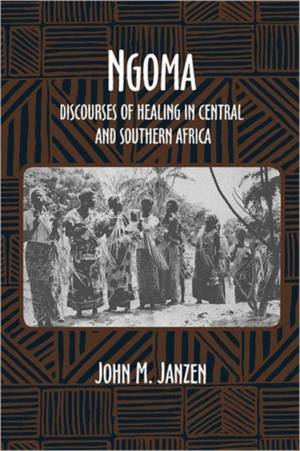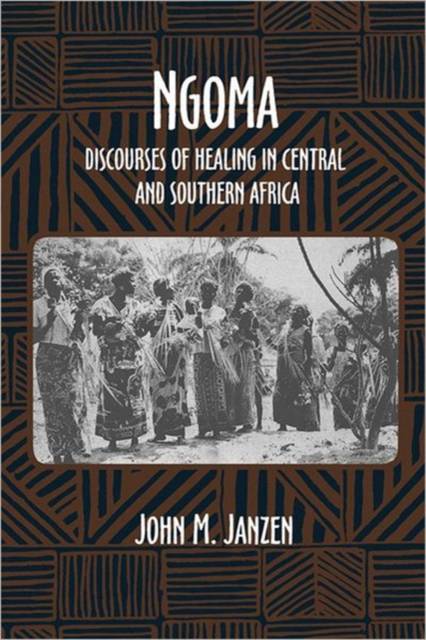
- Afhalen na 1 uur in een winkel met voorraad
- Gratis thuislevering in België vanaf € 30
- Ruim aanbod met 7 miljoen producten
- Afhalen na 1 uur in een winkel met voorraad
- Gratis thuislevering in België vanaf € 30
- Ruim aanbod met 7 miljoen producten
Zoeken
€ 106,95
+ 213 punten
Omschrijving
Ngoma, in Bantu, means drum, song, performance, and healing cult or association. A widespread form of ritual healing in Central and Southern Africa, ngoma is fully investigated here for the first time and interpreted in a contemporary context. John Janzen's daring study incorporates drumming and spirit possession into a broader, institutional profile that emphasizes the varieties of knowledge and social forms and also the common elements of "doing ngoma."
Drawing on his recent field research in Kinshasa, Dar-es-Salaam, Mbabane, and Capetown, Janzen reveals how ngoma transcends national and social boundaries. Spoken and sung discourses about affliction, extended counseling, reorientation of the self or household, and the creation of networks that link the afflicted, their kin, and their healers are all central to ngoma--and familiar to Western self-help institutions as well. Students of African healing and also those interested in the comparative and historical study of medicine, religion, and music will find Ngoma a valuable and thought-provoking book.
Drawing on his recent field research in Kinshasa, Dar-es-Salaam, Mbabane, and Capetown, Janzen reveals how ngoma transcends national and social boundaries. Spoken and sung discourses about affliction, extended counseling, reorientation of the self or household, and the creation of networks that link the afflicted, their kin, and their healers are all central to ngoma--and familiar to Western self-help institutions as well. Students of African healing and also those interested in the comparative and historical study of medicine, religion, and music will find Ngoma a valuable and thought-provoking book.
Specificaties
Betrokkenen
- Auteur(s):
- Uitgeverij:
Inhoud
- Aantal bladzijden:
- 276
- Taal:
- Engels
- Reeks:
- Reeksnummer:
- nr. 34
Eigenschappen
- Productcode (EAN):
- 9780520072657
- Verschijningsdatum:
- 21/10/1992
- Uitvoering:
- Hardcover
- Formaat:
- Genaaid
- Afmetingen:
- 160 mm x 237 mm
- Gewicht:
- 539 g

Alleen bij Standaard Boekhandel
+ 213 punten op je klantenkaart van Standaard Boekhandel
Beoordelingen
We publiceren alleen reviews die voldoen aan de voorwaarden voor reviews. Bekijk onze voorwaarden voor reviews.











